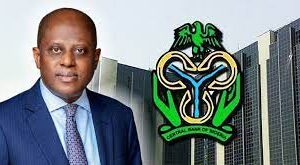As borrowing costs continue to escalate and inflation rate hits record high, the Monetary Policy Committee (MPC) began its two-day meeting on Tuesday to deliberate on interest rates and other critical economic measures.
The meeting comes amid heightened financial uncertainty, with soaring borrowing costs placing significant strain on businesses and consumers alike.
Between January and May 2024, the Central Bank of Nigeria (CBN) raised the monetary policy rate (MPR) by a staggering 750 basis points to 26.25 per cent, significantly impacting the cost of capital for businesses as well as the government.
Nigeria’s inflation rate surged to 34.19 per cent in June 2024, the highest in over 28 years, while the naira currently trades at over N1,500 against the US dollar.
Victor Onyema, Lead of Portfolio Management at Norrenberger Asset Management Limited (NAML), noted that the high yield on risk-free instruments has significantly impacted the ability of companies to raise debt capital at minimal cost.
“We are in a delicate balancing act,” said Dr. Ahmed Musa, a senior economist at the Central Bank. “On one hand, we need to manage inflation and stabilize the currency. On the other hand, we must be cautious not to stifle economic activity by making borrowing prohibitively expensive.”
The implications of rising borrowing costs are already being felt across various sectors. Small and medium-sized enterprises (SMEs), which are particularly sensitive to changes in interest rates, have reported difficulties in securing affordable financing.
